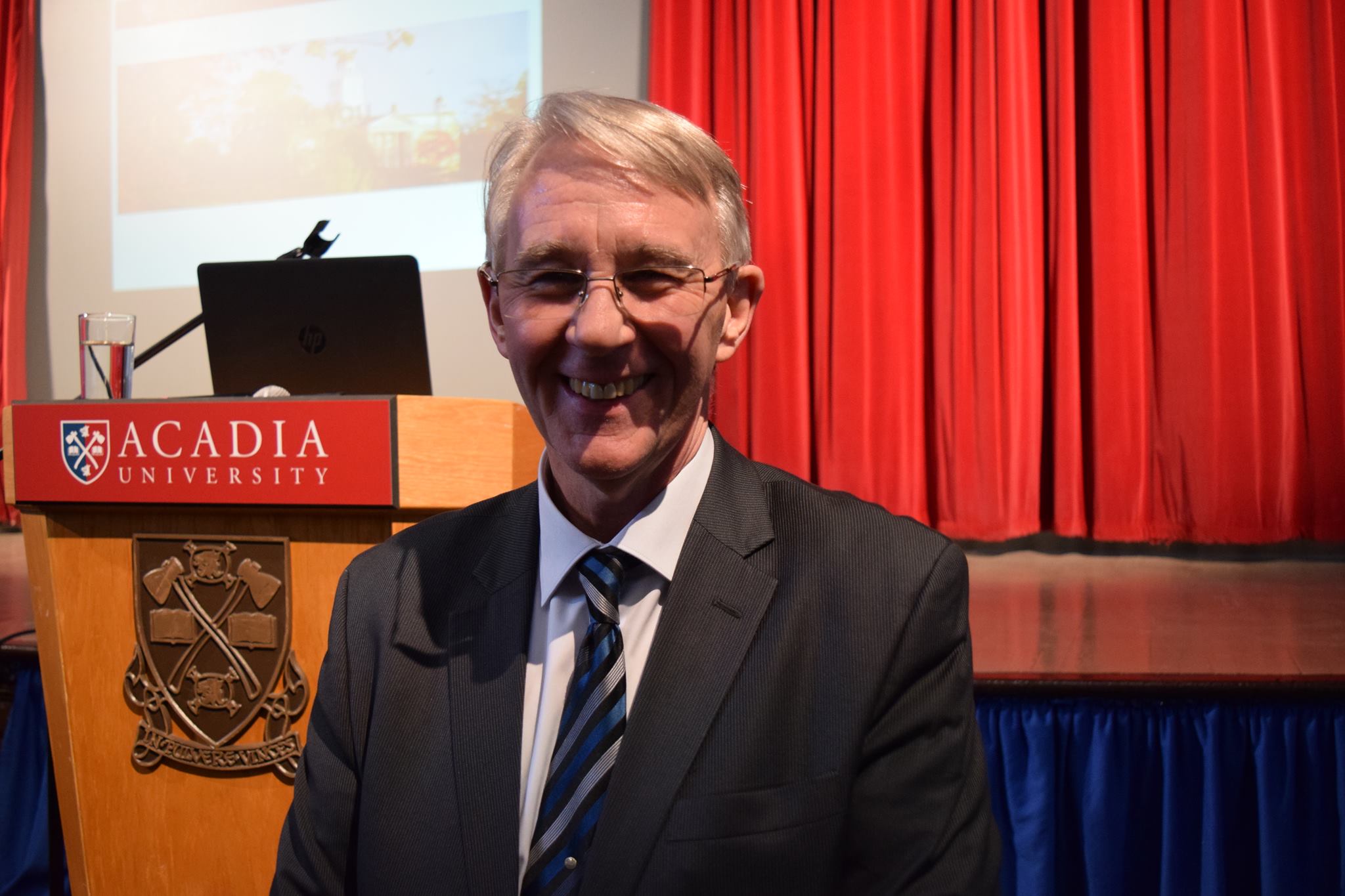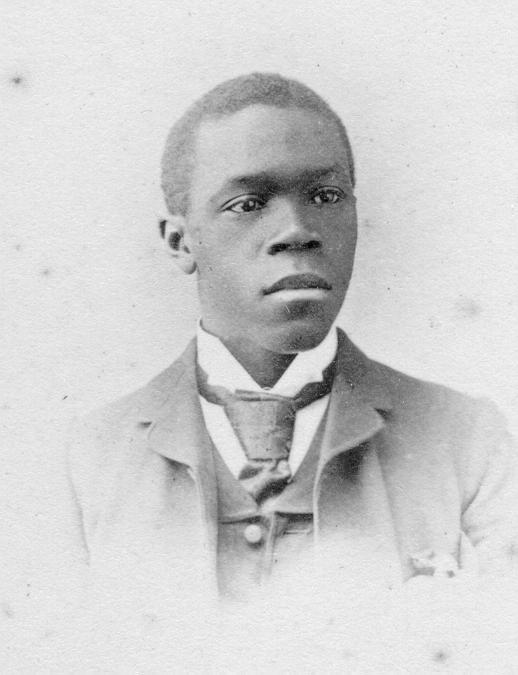Acadia has been my home for the past 4 years. I’ve experienced many incredible moments and many terrible ones. I have been tested and pushed to my limits. I’ve learned so much and at the same time questioned what the point of living was. Looking back now, I don’t regret coming to Acadia, even though I almost did but my mother reminded me not to throw away the baby with the bath water. All universities have their short comings, what’s important is that the university makes an effort in resolving those challenges and addressing the affected students through continued communication until the issue has been resolved. If not, disappointment and a lack of trust in the university occurs. I have had many conversations within myself about what I wanted to write, and whether I am ready to share my story is still up for debate in my head but as the saying goes, “if not now then when and if not you then who?”
My time at Acadia has shown me the power of the student voice however, not a lot of students understand this. Some students genuinely believe that their voices are not worth being heard. Other students end up believing that they are the problem. I was one of those students. There’s nothing wrong with feeling like that sometimes but understand that its not the truth. Human life is valuable and as long as you have breath, there will always be hope, even when you can’t see it or think you are undeserving of it. Being a student can be tough and I faced many challenges as a black international student.
For one, I never thought being black would become a defining characteristic, I found myself getting labelled as the token black person due to my active involvement with on campus activities. This made me question whether I was truly deserving of awards and opportunities or was it a result of my skin tone. My observations on race relations and interest in student politics at Acadia began when I met Senewa Sena. She was the only black house council member I knew of at the time and we didn’t even live in the same residence. As an international student and campus leader, I felt comfortable asking her all my odd questions which she answered to her best capabilities. Senewa introduced me to other students I doubt I would have interacted with if left to my own devices at the time. She talked to me about the ASU elections and how each position had the potential to help students. Senewa was also the only other black student besides me and one of three (including myself) international students to run in the general elections that year. I was running for a councillor position and the feedback I received from students was that I looked unapproachable and intimidating. This made me laugh because people have told me I have a resting bitch face and I tend to wear earphones when I walk because I’m either trying to distract myself from my thoughts or overthinking to good background music. Overthinking tends to be one of my strong suits. I thought the reasons were justified and so I made an effort to smile more in public and not wear my earphones.
Due to the exposure from campaigning on campus, more students knew my face and I had a lot of international students approach me with questions about Acadia and Canada. Questions I had no clue of how to answer but had an idea of where they might find answers. This was when I understood the importance and need for representation at Acadia. I did wonder what reasons some international and minority students had for not feeling comfortable talking to a professor, resident assistant or student government member. In my 1st and 2nd year, I didn’t think my professors would care, I didn’t really know my RA and didn’t know about the student government or what they did. I also wasn’t aware of the resources which were available to me.
The second time I ran in the student by- elections was for Equity Officer (now Diversity and Inclusivity Officer), I questioned why I lost. I smiled more, interacted with more groups of people because I wanted domestic students to understand that, even though I’m from a different continent, I wanted to listen and help. The feedback from that election was mixed, with a few people apparently opting for the candidate with an easier name to pronounce. I genuinely considered that I was just unlikable. At this point I was balancing working at the Alumni Office, being an editor for the Ath and a course overload. The economic and political instability of Zimbabwe also started affecting my family severely. Money became very tight. My older brother (’13) stepped in to help my parents pay for my tuition with his savings. I couldn’t keep up with monthly tuition payments and would often get my access to ACORN taken away which left me feeling even more isolated and helpless. I didn’t know my classmates enough to ask for course material posted on ACORN and I wasn’t yet comfortable with talking to my professors about my personal struggles. The only times I really talked to my classmates was when I had to do a group project. I also didn’t want people to get comfortable enough with me to ask me personal questions about my family because I didn’t know if I could hold back my tears. I was feeling the effects of not seeing my family, it had been over 2 years since I had gone home. I was tired and homesick but had to push on. After these elections I noticed more students approaching me with questions and this time it wasn’t just international students, that made me happy, but it was also draining. I was also happy when the Diversity and Inclusivity Officer position was switched from being an elected to a hired position removing the barrier of popularity, which is usually a defining factor in student elections. You shouldn’t have to know most of the university population, to be able to make a difference.
January 2019 came, and I received a call from my mum, telling me that I might have to come back home because she wasn’t confident in her ability to support me financially. Things had just steadily been getting harder. I knew my parents were doing their best and that I couldn’t be angry at anyone, but I was. I was angry at myself for not working harder, I felt like I was taking for granted the scarifies my family had made to support my studies. The first place I went to after talking to my mother, was the Alumni Office. It was my safe space and the closest thing to home I had here. I felt cared for. They never made me feel uncomfortable for being myself. They listened, allowed me to cry without fear of judgement and told me of people I could contact within the university who would be able to help me with my situation. I was made aware of more resources I could use. This made me understand how information and a good support system you can physically go to can drastically change an otherwise defeating situation.
If it wasn’t for the Alumni Office, I would have packed my bags and gone home to Zimbabwe where political and economic instability seem to continue unabated. takeover was occurring. I think about that a lot, if another student was going through what I was going through and didn’t work at the Alumni Office, what would have been the outcome? What happens to other students who aren’t aware of the available recourses at Acadia? Do they give up? Switch to plan B or C? Suffer in silence? It’s a terrible feeling to feel as though you must struggle alone (or struggle at all). Around this time, it became harder to communicate with my family. Zimbabwe was experiencing 12 hours of no electricity daily and when it wasn’t, network service would be so bad I couldn’t comprehend a short sentence let alone attempt to have a video call. At these moments I truly thought my life was a sick joke due to the people I wanted to talk to the most, being slightly out of my reach. I would have high hopes each year that I would get to see them, and as each year passed, I lowered my expectations with each subsequent year to avoid disappointment. I distracted myself from my inability to help myself by helping others.
Naturally increasing student engagement was a priority but I thought that would be impossible without tackling race relations on campus. An issue I found at Acadia was that most people (student, faculty and staff) were more focused on trying not to offend each other than understand each other. As a community, we will never be able to understand each other without communicating with each other, asking difficult and uncomfortable questions. As a perceptive person, I can tell when my differences make people uncomfortable and that naturally makes me uncomfortable. I wanted to help foster spaces where people could have engaging and informative discussions about race relations, equity vs equality, culture, sexual identities and orientations etc. Whilst I was genuinely interested in student politics and bringing about necessary changes from my perspective, I was also driven by an economic interest. I desired financial stability to reduce my anxiety levels and allow me to better focus on my studies. I ran for the president position in the general student elections. ASU executive members are paid well and have a portion of their tuition paid for by the university. I thought if I had that position, I would surely be able to afford the plane ticket home and finally see my family that summer will contributing to a better Acadia. It was a very terrible time for me, however. I would see a lot of news articles about the current state of Zimbabwe. The growing economic hardships were negatively impacting my life, thousands of miles away with the potential to ruin my academic pursuits. I would think about my last day in Zimbabwe. My father and I woke up extremely early and drove through back routes to get to the airport without getting caught in any politically charged demonstrations as tensions grew thick. I remember hugging my dad goodbye and him going straight to work as if violence wasn’t knocking on the door. For my dad, his only priority was to be able to provide for his family. My anxiety attacks were the worst during that semester.
The feedback I received from those elections were that I was too cute and soft spoken for the role. I was dumbfounded, how did I go from being intimidating and unapproachable to being cute. A lot of people would also comment on how soothing my voice was which I think was to make me feel better. I found it all funny and a waste to be sad about losing because at the end of the day I tried. Things were already changing; I just wasn’t fully aware of it. I was also happy that another black international student ran for president and was interested in student government, giving students a wider pool of diversity to select a leader from and I didn’t feel so alone in the fight for change.
I became the EIC and was awarded the 2019 Student of the Year Award that semester. I was so happy and honoured, but I couldn’t really express that. Many people congratulated me, and I felt guilty because I either wanted to cry or just lay in bed. All the emotions, I had bottled in were just oozing. I thought I would be fine in a few days, like I usually am but I didn’t get better. I became more depressed, more anxious. I was tired but I kept on going. I didn’t get to go home and see my family that summer as well.
September 2019, I started the semester dead inside and I didn’t even realise it. My body was in survival mode, only having energy for activities my brain identified as necessary. I found myself unable to control my tears in public, being around students who had recently spent their summer with their families made me so jealous and sad. I didn’t know what I had done to deserve such punishment from life. I would cry myself to sleep most nights, craving a hug from my mum or food I grew up eating. I had taken on another job at the Wong International Centre to better support myself financially. It wasn’t a choice, but a must for me to survive. There were days where I would start my day with work at the Alumni Office from 8:30 until my first class at 10am. Finish at 11:30, go back to the Alumni Office and work until my next class at 1:30pm that ended at 3pm. I would then go back to the Alumni Office to work until 4:30pm. After this, I would have a quick break before going to work at the Wong Centre around 4:45pm which usually entailed accompanying international students to Kentville to get their SIN or Nova Scotian ID. I would be back home around 7:30, have a mental breakdown, cry and ask God why my life is like this, then attempt to do homework and work for the Ath.
I started crying in the mornings as well probably because I realised that my situation had not changed from the previous day. I would feel guilty for not being able to help my family or my country. I wanted so badly to go home but would then feel miserable for being ungrateful and not happy with my circumstance because I knew I was better off than most people in Zimbabwe. I wouldn’t eat because I didn’t have the energy to chew or swallow, I felt unworthy of nutrition and these thoughts and behaviours were reinforced by my financial situation. In my mind, I had convinced myself that it was okay to not eat because I was saving money. I could see my ribcage. Some people didn’t notice my weight loss and some people did. I was asked a few times what my secret to losing weight was because being slimmer is a beauty standard here. I wondered what people would say if I answered stress and starvation?
I wanted everything to stop. I fell physically sick a lot that semester and it become harder for me to be present both physically and mentally. I didn’t want to live the way I was living. There were a lot of people that confided in me and asked for help. I couldn’t say no because I know how having one person in your corner can change your perception of reality. What I didn’t understand was that I needed to take a step back. I needed to be patient with myself and understand that a lot of things were out of my control. I focused on being angry with myself for not coping with my situation better.
My grandmother was experiencing serious medical issues during this time and a cousin of mine passed away (not because she couldn’t get access to a hospital but because she couldn’t afford the medication which I can easily get from Shoppers for less than $40). The unfairness of life got to me. All I did was cry. I cried because that was all I could do. I cried because I couldn’t be physically with my family. I cried because it felt as though life kept getting worse even though I couldn’t bear anymore. I tried to set up counselling sessions that semester, but my schedule was just too busy.
At this point my academics were being affected and I knew I needed to reach out to my professors which I did. One professor didn’t bother responding to my emails whilst the other told me that “anxiety and depression are the easiest disorders to control” and “I should go back home and see if that helps”. In an email…. I didn’t like how she simplified my experience. If I could go home to visit, I would’ve already. I didn’t understand why one professor chose to ignore my cry for help and why the other prof (who had been my department head since I started in 2016) could be so dismissive of what I was going through. Why didn’t they believe me? Did they genuinely believe I made everything up? Why didn’t they look at my past work and ask why the quality of my work had dropped? I wasn’t lazy, I just wasn’t motivated. I felt like I had to prove that my mental health had declined so much. I was tired and homesick; I was drowning in a deep pit of depression. I was devasted because nobody could tell that I was so close to giving up and that I was reaching out for help because I did care about my academics. I lost faith in Acadia that day. I was tired of caring about a place, I felt didn’t care about me. I was tired
January 2020, I was numb but so close to the finish line. I was receiving more support than the previous semester, but it felt as though some of the people who had been made aware of my situation were now waiting for me to get better immediately. My problems weren’t so simple, and I hated myself for not getting better quick enough. I was exhausted from constantly keeping myself together. The incident with my department left me weary of faculty and staff at Acadia even though I have had amazing professors who motivated me before. The reality of the pandemic set in when everything shut down and I wondered why I was even bothering. It had now been over 4 years since I had seen my family and I started to believe I would never see them again…. I was tired of being miserable all the time and tired of being tired. My mind often wondered to very dark places, but I was able to overcome them with the right support. I’m still healing even though its been a very slow recovery with many relapses of negative thoughts. I just remind myself how far I’ve come and how many people genuinely care about me. I understand now that I’m not weak but strong and just because I’m strong doesn’t mean I can’t be tired. I’ve also learned to be kinder to myself (which I find hard to consistently do) and appreciate my best, even when my best is being able to only make my bed.
Acadia you can do better to support students. There are many wonderful employees, faculty and staff at Acadia who constantly strive to better the university community and engage students but there are also some who seem to not care for the community. I suggest that the university have more opportunities for cultural awareness training especially for professors because words truly can kill. Hold community discussions with students and senior management leaders about race relations. If you’re uncomfortable to talk about it, get a representative from the International Wong Centre (not just for international students), the Black Students Association (which is not just for black students), the cultural student advisor or the diversity and inclusivity officer to help facilitate such conversations. I ask that as a university we work at creating a racism policy. Currently, only a harassment and discrimination policy exists. Its important, it let students know that you are aware of what they might be experiencing and that there is an opportunity to get help. With regards to student leadership, it makes me happy knowing that many students, both domestic and international are rising to the occasion and working towards a more inclusive student experience. Don’t get me wrong, a lot still needs to change but from what I have seen so far, I have faith. Change is slow, but truly worth it.
I also suggest that as a university, put equal effort in employing qualified people of colour whilst creating inclusive environments. You can attract the most educated POC to work at Acadia but if they don’t feel included in the environment, then they will just leave. Same goes for students. I always loved working at the alumni office because even though I was from another country, grew up in a different culture and looked so different, they always made me feel included and welcomed. They stepped up to become my family when life made it impossible to be with my biological family. They have contributed to me still being alive today and a lot of them probably don’t know that. I love Acadia even though it gave me many reasons not to. I know that everything I went through has and will shape me into the person I need to become. I look forward to watching you grow Acadia and become better because “By effort (literally: in dust), we will conquer”





